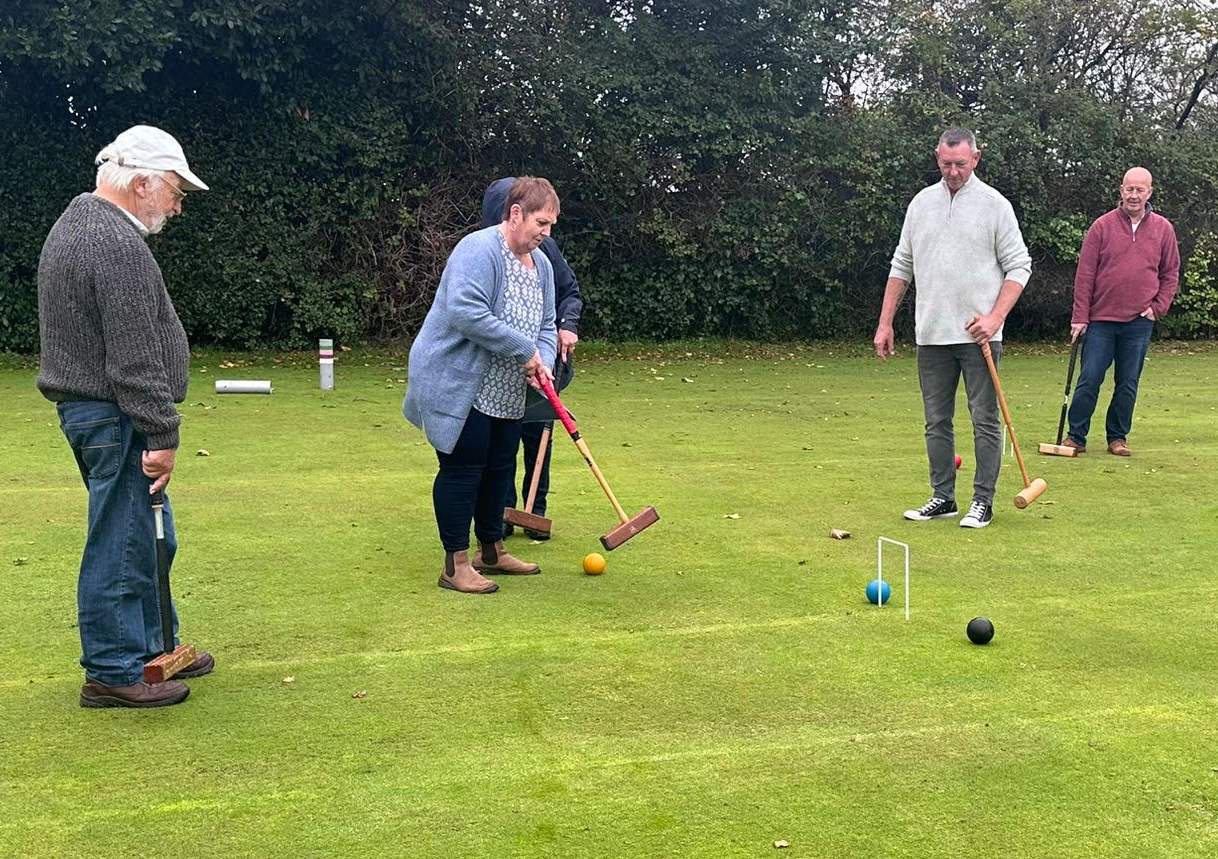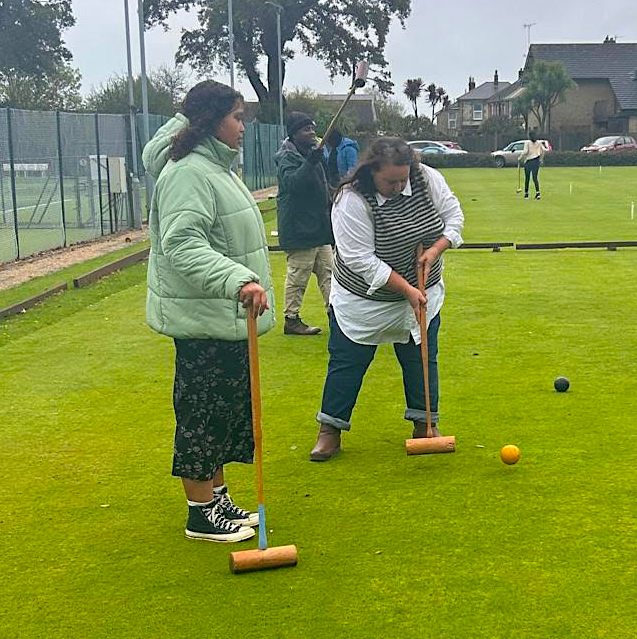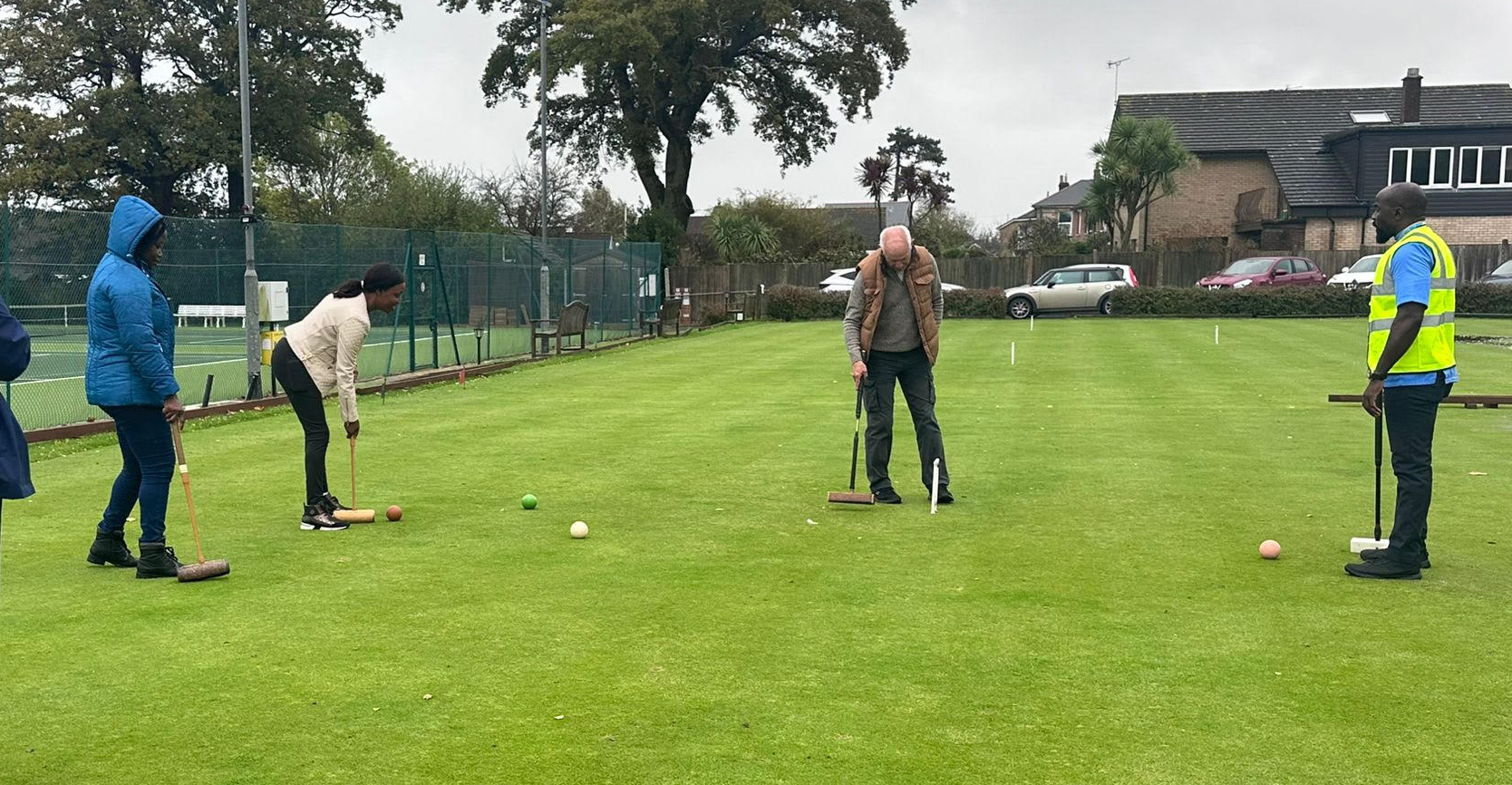The Croquet Cure
A Swing Towards Connection: The Croquet Cure
How a classic British game is helping Alzheimer’s patients reclaim their lives.
On a crisp spring afternoon on the Isle of Wight, laughter and gentle competition filled the air as seniors, caregivers, and staff from Bluebird Care Isle of Wight gathered for a croquet match. But this was no ordinary game. These matches are designed in conjunction with Alzheimer's Society for a unique purpose: to support those affected by Alzheimer’s disease.

The Growing Alzheimer's Crisis in the UK
According to Alzheimer's Society UK, over 900,000 people live with dementia in the UK, a figure expected to rise to 1.6 million by 2040. The most common form of dementia, Alzheimer's disease, disproportionately affects those over 65, with women representing nearly two-thirds of those diagnosed. The emotional, social, and economic toll on families, caregivers, and the healthcare system is staggering.
Enter Croquet: More Than Just a Game
At first glance, croquet may seem like a quaint pastime, but its structured, gentle nature makes it ideal for seniors, especially those with cognitive impairment. Bluebird Care Isle of Wight's management team began implementing the game not only for its nostalgic charm but because of its cognitive, physical, and emotional benefits.

Mental Benefits for Seniors
The game involves strategy, memory, and problem-solving—skills that are often impaired by Alzheimer’s. It requires players to focus, strategize, and remember sequences—all of which can stimulate neuroplasticity and delay cognitive decline. Regular mental engagement has been shown in studies to improve quality of life for people with Alzheimer’s.
We’ve seen residents who struggle to recall what they had for lunch come alive on the croquet lawn, - says Mark Skipper, a senior caregiver
Physical Advantages
While the movements in croquet are low-impact, they still encourage coordination, balance, and flexibility—crucial areas for seniors. Regular gentle physical activity can delay the progression of dementia symptoms and reduce risks of falls.
Social Connection and Joy
Isolation is a major risk factor for cognitive decline. Croquet sessions bring residents, staff, and sometimes local volunteers together in a shared space. There’s chatting, laughter, and most importantly—connection.
Caring for Alzheimer’s patients is emotionally and physically demanding. But croquet sessions have provided a space where staff and residents can bond in a fun, stress-free environment.
The Caregiver Perspective
Caregivers also benefit.
It’s not just about therapy for them—it’s therapy for us,” says Zadock Amugada, a care assistant. “We’re not cleaning or dressing anyone—we’re teammates. We’re equals on that lawn.

A Model for The Care Service Industry
Bluebird Care Isle of Wight and Alzheimer's Society have started hosting croquet matches, bringing other care facilities into the fold. These matches are helping raise awareness of the Alzheimer’s epidemic while demonstrating an accessible and joyful intervention.
The croquet lawn may seem an unlikely battleground, but for those fighting Alzheimer’s, it’s a place of resilience, joy, and rediscovery. As Bluebird Care Isle of Wight shows, sometimes the simplest solutions—like a wooden ball and a sunny afternoon—can offer the greatest impact.